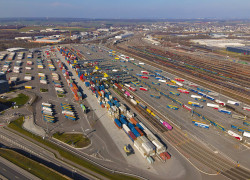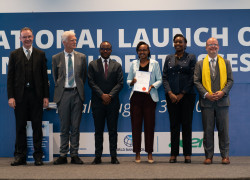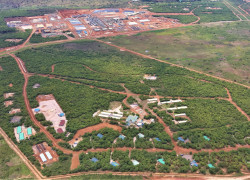PwC: The trend for governments to raise more revenues through indirect taxes seems set to continue
PwC released new tax report: “Shifting the balance from direct to indirect taxes: bringing new challenges”
One thing is clear: unless you consider the make-up of your tax bills in future, you won’t be geared up with the right systems and resources to manage them effectively. It might require some fundamental rethinking of the structure of your tax function as well as your broader finance and procurement departments to make sure you actually identify the costs which need to be controlled
Laurent Grençon, VAT partner, PwC Luxembourg
PwC’s newly released “Shifting the balance from direct to indirect taxes: bringing new challenges” provides a global perspective on the shift from direct to indirect taxes. The trend for governments to raise more revenues through indirect taxes seems set to continue. The resulting shift from direct to indirect taxes will give multinationals fresh challenges, and companies may need to take a different approach to tax management in the future.
The spread of Value Added Tax (VAT) or Goods and Services Tax (GST) across the world is continuing at a rapid pace. The design of these taxes is constantly under review too for those who already have them. There are fundamental reforms being contemplated by India and China, with China moving rapidly to the transition from business tax to a full VAT system. The US is still considering VAT, but no major change is expected in the near future. Luxembourg is no exception to the rule with businesses facing VAT challenges. For example, the number of VAT audits conducted by the VAT authorities has increased over the last years, and the information requested and questions raised during these audits have become increasingly technical and specific.
Customs and excise duties and other trade charges/ levies are also gaining profile. Typically these costs are not identified as taxes in the traditional sense and are buried in the cost of goods. Until now, the impact of environmental taxes and charges on business has been relatively small. While these impacts are still not comparable with those of traditional indirect taxes such as VAT, they’re surely set to rise.
“One thing is clear: unless you consider the make-up of your tax bills in future, you won’t be geared up with the right systems and resources to manage them effectively. It might require some fundamental rethinking of the structure of your tax function as well as your broader finance and procurement departments to make sure you actually identify the costs which need to be controlled”, says Laurent Grençon, VAT partner, PwC Luxembourg.
Communiqués liés
RSA launches technology and management liability insurance s...
RSA Luxembourg, part of Intact Insurance Specialty Solutions, today announces th...
Lancement d'une nouvelle connexion intermodale entre Bettemb...
CFL multimodal a le plaisir d'annoncer le lancement de sa nouvelle connexion i...
Experts from LUNEX award first micro-credentials in Rwanda o...
The Rwanda Ministry of Education (MINEDUC) formally inaugurated Syllabi, a publi...
ERG Notes that ENRC Secures Landmark Victory as Court of App...
Eurasian Resources Group (ERG), a leading diversified natural resources group he...
LetzToken et La Vie est Belle annoncent leur partenariat ouv...
«?LetzToken?», plateforme de tokenisation pionnière basée à Luxembourg, et ...
ERG announces a Pre-Export Finance Facility Agreement based ...
Eurasian Resources Group (“ERG”, “The Group”), a leading diversified nat...
Il n'y a aucun résultat pour votre recherche







